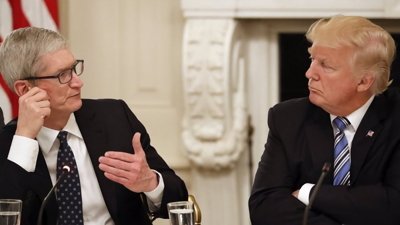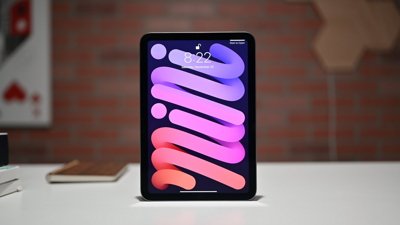Speaking at the Goldman Sachs Investment Symposium, Apple chief operating officer Tim Cook stated that the iPhone isn't beholden to the one-carrier strategy used so far, even if it makes the most sense from a business standpoint.
This model could change over time, he says, but the ultimate plan is to provide the best possible experience early on. The existing tie-in with AT&T gave Apple a large amount of coverage while allowing both companies to be themselves, and a simple experience for first-time users.
"We're not married to any business model," Cook explained. "What we're married to is shipping the best phones in the world."
He added that for some areas to get the iPhone, it might be necessary to drop even staple features of most cellphone services. Some areas rarely if ever offer post-pay (subscription) cellphone service, for example, which would require a setup process devoted solely to prepaid options.
This isn't a sign of things Apple will or won't do in the market, Cook warned investors.
The officer also reiterated that there would always be a certain level of hacking no matter how widespread the phone might be, if simply because the demand exists. When users outside of official areas are "stepping over each other" to import iPhones, that indicates significant potential, he said.
The Apple senior staffer also noted that the iPhone's price cut to $399 during the holidays wasn't just a reaction to customers who thought the device was too expensive. It helped build momentum and a user base for the upcoming SDK, which he said would let programmers "only be limited by [their] imagination."
Beyond the iPhone, Cook acknowledged but downplayed concerns that the market for digital music players was oversaturated and cooling off. In a rare admission, the COO admitted that sales for the iPod shuffle had lagged by 17 percent worldwide during the holidays and was the key factor behind new price cuts that should help rekindle sales.
There was also likely some cannibalization of iPhone sales by the iPod touch, but the iPod sold well and needed to be out in the market to set the groundwork for the Wi-Fi mobile platform it represents, he said.
However, Cook reassured investors and analysts at the Goldman Sachs event by characterizing the iPhone as the company's greatest chance at success to date. Apple is still on track to sell 10 million iPhones in 2008, he said — a statement that sent the company's share price up over 3 percent in after-hours trading.
The iPhone is already an "incredible accomplishment," he said, but has far more potential in the long term. "I need a word bigger than 'enormous' to describe it."
 Katie Marsal
Katie Marsal






-m.jpg)






 Christine McKee
Christine McKee
 Amber Neely
Amber Neely
 Andrew Orr
Andrew Orr

 Sponsored Content
Sponsored Content

 William Gallagher
William Gallagher







56 Comments
Yay! I can have the iPhone soon! Anyways T-Mobile(in US) is wayyyy better than AT&T my bill is usually $50
The iPhone is already an "incredible accomplishment," he said, but has far more potential in the long term. "I need a word bigger than 'enormous' to describe it."
[ View this article at AppleInsider.com ]
How about its bigger than Steve's Ego?
This is what I've said. Apple has only used the carrier lock in to get the iPhone started with a partner who is equally invested in its success. Gives the customer a consistent experience. After the iPhone has proven a success Apple is in a better position to deal with multiple carriers.
You get what you pay for. T-Mobile's coverage is worse than ATT. T-Mobile has only begun 3G, it will be some time for 3G to expand very far.
"Apple is still on track to sell its 10 million iPhones by the end of 2008, he said "
Do you guys have a direct quote on this from him?
Other sources are reporting that he reiterated 10 million in calendar year 2008, not 10 million by years end.
Could you clarify, I'd love to give you guys the benefit of the doubt but you've gotten this wrong in the past.
Also, looks like AAPL popped again in after hours based on the reiteration of confidence in selling 10M phones in 2008. It's up about 8% or almost 10 bucks a share from the close yesterday.